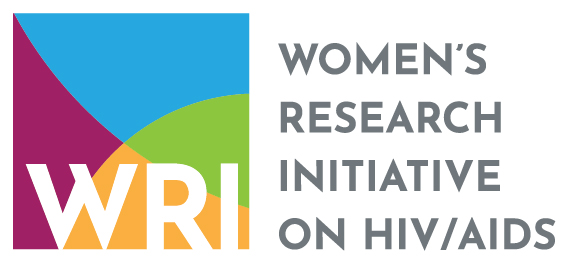WRI 2016 focused on women across the entire spectrum of HIV cure research, from clinical trial research participation and conduct, to ethics and stakeholder engagement, to advocacy, policy and funding around HIV cure. Cure research has garnered much excitement in the HIV community over the past several years, but women remain underrepresented across the continuum of HIV cure research. This has resulted in a lack of information about how interventions may have different effects in women than in men.
WRI 2016 featured presentations by experts highlighting the most recent evidence on women in cure research and examining successful strategies to increase women’s participation across the board. The meeting also focused on how the WRI can advance women in HIV cure research moving forward. We addressed the ways in which the WRI may work to disseminate information, encourage clinical trial participation (through interventions targeting both potential clinical trial participants and researchers), encourage inclusion of sessions examining sex differences in cure research at scientific meetings, and other policy and advocacy-related efforts.
Key Questions
Meeting participants were asked to address a number of critical questions throughout the course of the meeting:
- What is the value in having women represented in HIV cure research and what do we stand to learn from their participation?
- How can an understanding of sex differences in HIV cure research be informative toward finding a cure?
- What concerns about cure research exist among women and other potential clinical trial participants? How are/can they be addressed?
- What challenges exist in recruiting women to participate in cure research?
- What interventions have been successful in encouraging women’s participation in clinical trials and how can those interventions be leveraged for use in cure research?
- Why are women researchers underrepresented in HIV cure research? What strategies might be used to increase those numbers?
- Is there value/importance in increasing the number of female researchers?
- What are the ethical issues attendant in HIV cure research? What strategies have successfully addressed those issues?
- What specific research gaps need to be addressed in order to maximize the success of HIV cure research?
- What can we, as the WRI, do to encourage all relevant stakeholders to be interested in and get involved in HIV cure research?
- What can each of us personally do in our work environment to advance the ideas generated at this WRI meeting?
2016 WRI meeting participants
| Erika Aaron Drexel University College of Medicine |
Adaora Adimora UNC School of Medicine |
| Jintanat Ananworanich U.S. Military HIV Research Program |
Sevgi Aral Centers for Disease Control |
| Nanci M. Archin UNC Cure Center |
Judith D. Auerbach* University of California, San Francisco |
| Dawn Averitt* WRI |
Julie Barroso Medical University of South Carolina College of Nursing |
| Kate Borloglou The Well Project |
Gina Brown* NIH-OAR |
| Gina Brown Institute of Women & Ethnic Studies |
Elizabeth Connick, MD University of Colorado Denver |
| Jeffrey Crowley O'Neill Institute/Georgetown Law |
Jenna Conley WRI |
| Rebecca Denison |
Karine Dube UNC at Chapel Hill |
| Keith Dunn Janssen |
David Evans Project Inform |
| Lisa Fitzpatrick* DC Department of Healthcare Finance |
Rowena Johnston amFAR |
| Jennifer Kates* Kaiser Family Foundation |
Naina Khanna Positive Women's Network - USA |
| Sandra Lehrman Merck & Co., Inc. |
Janelle Luster W.O.R.L.D. |
| Edward Machtinger Women's HIV Program at UCSF |
Krista Martel The Well Project |
| Veronica Miller Forum for Collaborative HIV Research |
Tonia Poteat Johns Hopkins University |
| Morey Riordan Riordan Strategies |
Jessica Salzwedel AVAC |
| Linda H. Scruggs Ribbon Consulting Group |
Eileen Scully Johns Hopkins University School of Medicine |
| Celeste Watkins-Hayes Northwestern University |
Andrea Weddle HIV Medicine Association |
| Charles Wira* Geisel School of Medicine at Dartmouth |
Carmen Zorrilla UPR School of Medicine |
*2016 advisory board member





